Explore the future of Decentralized AI (DeAI) in 2025. This comprehensive analysis delves into its definition, operational mechanisms, benefits, challenges, and real-world applications, highlighting how blockchain technology transforms AI and fosters transparency, security, and inclusivity across industries.
How to Navigate Decentralized AI Technologies: A Comprehensive Analysis for 2025
Decentralized AI (DeAI) refers to the development and operation of artificial intelligence systems across a distributed network using blockchain technology. It promotes transparency, security, and inclusivity by enabling collaborative contributions from various stakeholders, reducing reliance on centralized entities and empowering a broader community to participate in AI advancements.
Introduction
In the rapidly evolving landscape of artificial intelligence (AI), concerns about centralized control, data monopolies, and transparency have prompted the emergence of decentralized AI (DeAI). This innovative paradigm integrates AI with blockchain technology to distribute development, deployment, and management across a network of participants, fostering transparency, security, and inclusivity. Unlike traditional AI systems dominated by a few large entities, DeAI empowers a broader community to contribute to and benefit from AI advancements.
This article provides a thorough examination of decentralized AI, encompassing its definition, significance, operational mechanisms, key technologies, benefits, challenges, real-world applications, and future trends. It aims to equip stakeholders with a comprehensive understanding of DeAI’s potential to transform industries and enhance accessibility in 2025.
Definition and Scope
Decentralized AI refers to the development and operation of AI systems across a distributed network, typically leveraging blockchain technology to ensure transparency, security, and accessibility. Unlike centralized AI, where a single entity controls data and algorithms, DeAI enables a collaborative ecosystem where developers, data providers, and users share resources and governance.
The scope of DeAI extends across industries, including healthcare, finance, and supply chain management, offering scalable solutions that prioritize data integrity and user privacy. According to industry insights, DeAI represents a shift toward open-source, community-driven AI development, reducing reliance on proprietary systems.
Significance
Decentralized AI addresses critical challenges associated with centralized AI systems, which often concentrate power and data in the hands of a few organizations. This concentration can lead to data monopolies, lack of transparency, and potential misuse of sensitive information. DeAI mitigates these issues by:
- Promoting Transparency: Blockchain technology provides an immutable ledger, ensuring that AI processes are auditable and verifiable.
- Enhancing Data Privacy: Techniques like federated learning protect sensitive data by enabling collaborative model training without direct data sharing.
- Democratizing Access: DeAI lowers barriers to entry, allowing individuals and smaller organizations to participate in AI development.
- Fostering Innovation: A collaborative ecosystem encourages diverse contributions, driving creative and inclusive AI solutions.
These attributes position DeAI as a transformative approach to AI development, aligning with the growing demand for ethical and accessible technology.
Operational Mechanisms
Decentralized AI operates through a combination of advanced technologies that enable distributed processing and governance. The core mechanisms include:
- Data Storage and Management: Blockchain-based platforms store datasets securely, ensuring integrity and traceability without centralized control.
- Model Training and Deployment: Federated learning allows multiple parties to train AI models collaboratively, preserving data privacy by sharing only model updates.
- Transaction and Governance: Smart contracts automate agreements, such as payments for AI services or data contributions, ensuring transparency and fairness.
- Distributed Computing: Computational tasks are spread across a network of nodes, enhancing scalability and resilience.
- Data Integration: Cross-chain bridges and oracles integrate external data sources, enriching AI models with real-time information.
These mechanisms create a robust framework for decentralized AI, enabling secure and efficient operations across distributed networks.
Key Technologies
Decentralized AI relies on several advanced technologies to function effectively:
| Technology | Description | Application |
|---|---|---|
| Blockchain ⛓️ | A decentralized ledger for secure, transparent data storage | Records transactions, model updates, and data contributions |
| Smart Contracts 📜 | Self-executing contracts automating agreements | Manages payments, access rights, and governance |
| Federated Learning 🤝 | Collaborative model training without sharing raw data | Enhances privacy in healthcare and finance applications |
| Distributed Computing 🌐 | Spreads computational tasks across network nodes | Improves scalability and resilience |
| Zero-Knowledge Proofs 🔒 | Verifies data or computations without revealing details | Secures sensitive information in AI processes |
These technologies collectively enable DeAI to operate securely and transparently, fostering trust and collaboration.
Benefits and Advantages of Decentralized AI
The adoption of decentralized AI offers significant advantages for organizations and individuals:
- Transparency and Trust: Blockchain’s immutable ledger ensures that AI processes are auditable, reducing the risk of manipulation.
- Data Privacy: Federated learning and zero-knowledge proofs protect sensitive data, making DeAI suitable for industries like healthcare.
- Resilience: Distributed systems reduce the risk of single points of failure, enhancing reliability.
- Inclusivity: Lower barriers to entry enable diverse participation, fostering innovation from global contributors.
- Economic Opportunities: Tokenization and smart contracts create revenue streams for data providers and developers, supporting a collaborative economy.
These benefits position DeAI as a forward-thinking solution for addressing the limitations of centralized AI systems.
Challenges and Disadvantages of Decentralized AI
Despite its potential, decentralized AI faces several challenges that require careful consideration:
- Scalability: Blockchain networks may struggle with the computational demands of large-scale AI models, leading to slower processing times.
- Interoperability: Integrating diverse blockchain platforms and AI models can be complex, requiring standardized protocols.
- Regulatory Uncertainty: The evolving legal landscape for blockchain and AI technologies poses compliance challenges.
- Technical Complexity: Developing and maintaining DeAI systems demands expertise in both AI and blockchain technologies.
- User Adoption: Educating stakeholders about DeAI’s benefits and implementation is essential for widespread acceptance.
Addressing these challenges involves investing in scalable infrastructure, developing interoperable standards, and providing comprehensive training for users.
Real-World Applications
Decentralized AI is being implemented across various industries, demonstrating its transformative potential:
- Healthcare: Platforms like Sahara AI enable secure sharing of medical data for AI-driven diagnostics, preserving patient privacy through federated learning.
- Finance: DeAI powers transparent financial services, such as credit scoring and also fraud detection, using blockchain for auditability.
- Supply Chain: Distributed ledgers and AI enhance transparency and efficiency in supply chain management, ensuring traceability of goods.
- Creative Industries: SingularityNET’s marketplace allows artists to monetize AI-generated content, also fostering collaborative creation.
These applications highlight DeAI’s ability to address industry-specific challenges while promoting transparency and inclusivity.
Implementation Strategies
To successfully implement decentralized AI, organizations should adopt a structured approach:
- Assess Needs: Identify specific use cases, such as data sharing or model development, to determine the appropriate DeAI platform.
- Select a Platform: Choose reputable platforms like SingularityNET or Sahara AI, evaluating features, scalability, and support.
- Integrate with Systems: Ensure compatibility with existing infrastructure, such as data storage or computing systems, to facilitate seamless adoption.
- Train Stakeholders: Provide training on blockchain and AI technologies to enhance user adoption and system effectiveness.
- Pilot and Test: Conduct a pilot project to evaluate performance, addressing issues before full-scale deployment.
- Monitor Performance: Use analytics to track system efficiency and also user feedback to optimize operations.
- Ensure Compliance: Implement robust cybersecurity measures to comply with regulations like GDPR, protecting sensitive data.
This approach ensures a smooth transition to DeAI, maximizing its benefits while minimizing challenges.
Emerging Trends
The landscape of decentralized AI is evolving rapidly, with several trends shaping its future in 2025:
- Advanced AI Algorithms: Improved machine learning models will enhance the accuracy and efficiency of DeAI applications.
- Scalable Blockchain Solutions: Innovations like layer 2 scaling and specialized AI blockchains will address scalability issues.
- Interoperable Platforms: Standardized protocols will facilitate integration across blockchain networks, enhancing DeAI’s reach.
- Ethical AI Development: Increased focus on transparency and fairness will align DeAI with societal values.
- Tokenized Economies: Cryptocurrency tokens will drive collaborative AI ecosystems, creating new economic opportunities.
These trends indicate a future where DeAI is more accessible, efficient, and also aligned with ethical principles.
Comparison Table
The following table summarizes key DeAI platforms, their features, and applications:
| Platform | Key Features | Applications | Best For |
|---|---|---|---|
| SingularityNET | AI marketplace, FET token, federated learning | Healthcare, finance, creative industries | Developers, businesses seeking AI services |
| Sahara AI | Blockchain-based, privacy-focused, data traceability | Secure data sharing, collaborative AI | Privacy-conscious industries |
| 0g AI | Trustless AI inference, scalable storage | High-performance AI workloads | Scalable AI applications |
| Internet Computer | Decentralized AI, secure smart contracts | Trustworthy AI solutions | Enterprises needing resilience |
Conclusion
Decentralized AI represents a transformative paradigm in artificial intelligence, leveraging blockchain technology to create open, transparent, and inclusive systems. By addressing the limitations of centralized AI, such as data monopolies and lack of transparency, DeAI fosters collaboration, enhances security, and democratizes access to AI resources. Platforms like SingularityNET, Sahara AI, 0g AI, and Internet Computer demonstrate its practical applications across industries, from healthcare to finance.
While challenges like scalability and regulatory uncertainty persist, ongoing technological advancements are paving the way for broader adoption. As organizations embrace DeAI in 2025, it will play a pivotal role in shaping a future where AI is accessible, ethical, and beneficial to all, driving innovation and also societal progress.
References
- Forbes: https://www.forbes.com/sites/digital-assets/2024/11/12/watch-decentralized-ai-in-2025-the-convergence-of-ai-and-crypto/
- MIT Media Lab: https://www.media.mit.edu/projects/decentralized-ai/overview/
- SingularityNET: https://singularitynet.io/
- Forbes:
- Built In: https://builtin.com/articles/decentralized-artificial-intelligence
- Sahara AI: https://saharaai.com/
- Linux Foundation: https://www.linuxfoundation.org/blog/shaping-the-future-of-generative-ai-0
- Internet Computer: https://internetcomputer.org/ai
- 0g AI: https://0g.ai/
- Gravity Team: https://gravityteam.co/blog/decentralized-ai-convergence/
Note: This article is for informational purposes only and not professional advice. Verify specific features, compatibility, and regulatory requirements before adopting decentralized AI solutions.

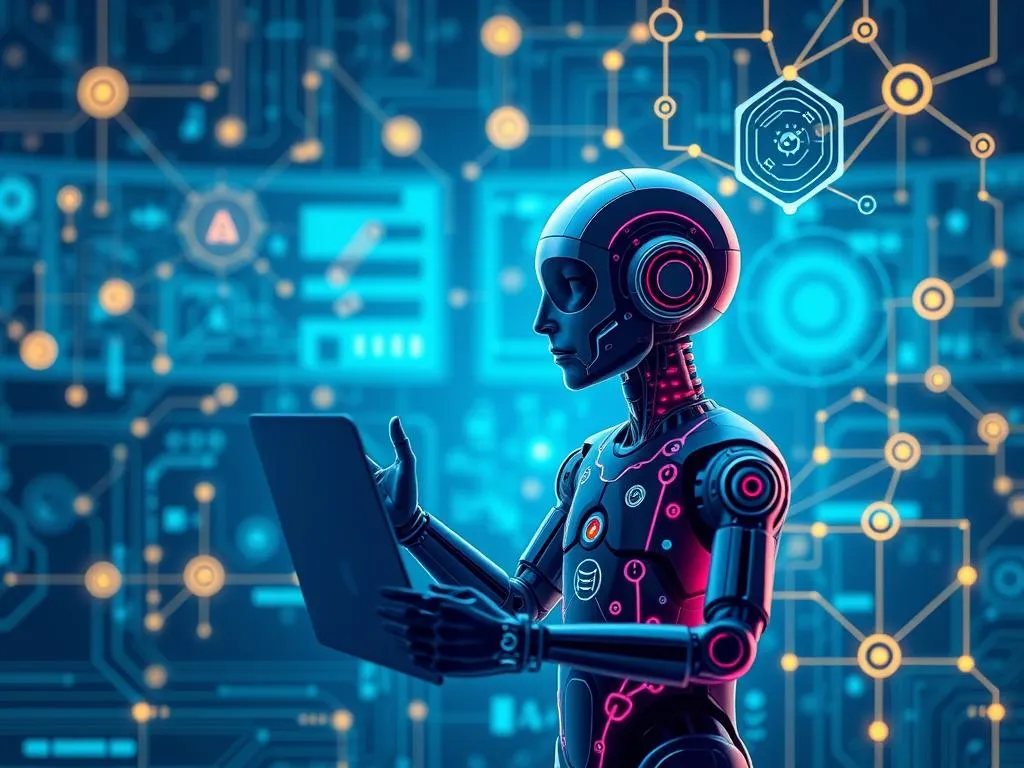
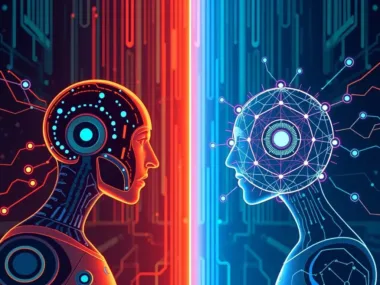
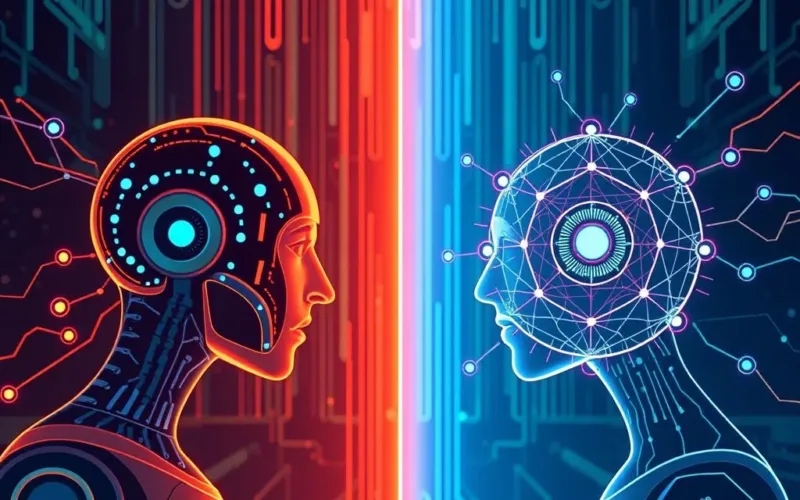


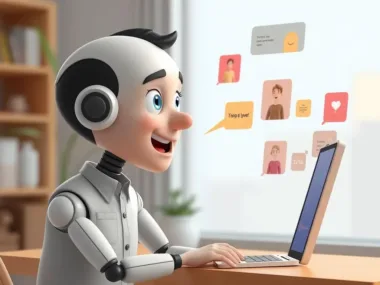





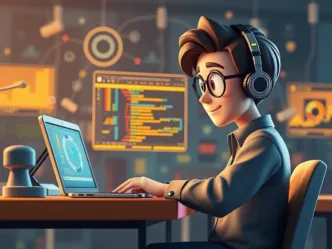
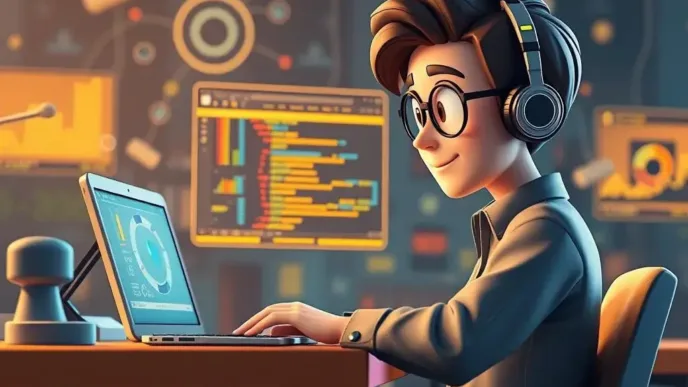
Leave a Reply